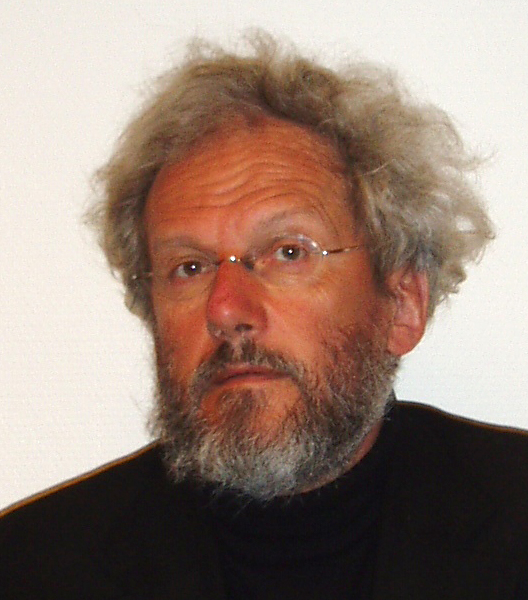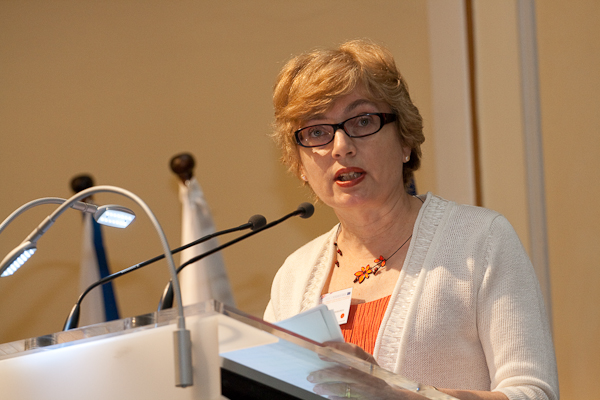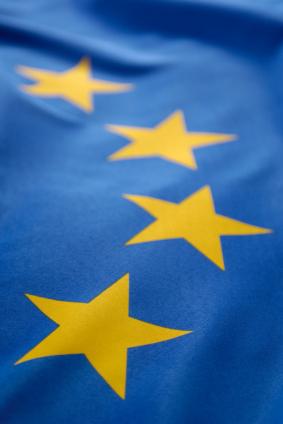A golden opportunity
National action plans to implement the European Research Area (ERA) are now being drawn up. Hans M. Borchgrevink of the Research Council of Norway believes this is the chance to put gender equality on the EU’s agenda, but quick action is required.
For nearly five years the European Commission has urged the member states to harmonize key aspects of their personnel policies at their research institutions. The purpose is to encourage researcher mobility and make it more attractive to work as a researcher in Europe.
The EU countries are now preparing action plans for how they will follow up these efforts, and this creates a golden opportunity to put gender equality high on the agenda, according to Hans M. Borchgrevink, Special Adviser at the Research Council of Norway, who has taken part in the process from the beginning.

On board
The research institutions must treat all employees equally, prepare career plans for the researchers at all levels and counteract short-term contracts. These are some of the principles laid down in the European Charter for Researchers and the Code of Conduct for the Recruitment of Researchers.
"In Norway, the Research Council of Norway, the Norwegian Association of Higher Education Institutions, the University of Bergen and the Norwegian University of Science and Technology (NTNU) have all agreed to the principles in these documents. NTNU and the Research Council of Norway have also signed on as pioneer institutions, and along with about 20 other European institutions they will take the lead on implementing the documents," says Borchgrevink.
He adds that an analysis performed by the Norwegian Association of Higher Education Institutions in 2008 shows that most of the principles are already in place in Norway, but that there is room for improvement in some areas.
Norway must make a significant effort on this front. As part of the EU’s so-called Ljubljana Process, which focuses on the development of the European Research Area (ERA), the Norwegian Ministry of Education and Research will submit a national action plan to the European Commission in autumn 2009. The action plan will describe the status of Norway’s implementation of the documents and the objectives up to 2010.
Gender equality tools
According to Borchgrevink, there are several reasons that advocates of gender equality in research should stay apprised of this process. First, he believes that the documents in and of themselves are essential tools for promoting gender equality in research. The Charter contains a separate section that calls on the institutions to promote gender balance among the employees, but Borchgrevink notes that several other sections are also important from a gender equality perspective.

"The Charter emphasizes, among other things, that the institutions should establish more flexible employment terms so that the careers of both women and men do not suffer because they have to combine work with family life. In addition, greater importance will be attached to the breadth of a researcher’s qualifications, which will be positive for many women researchers."
In 2008, the Committee for Mainstreaming – Women in Science performed a gender-sensitive analysis of the documents and concluded that the research institutions can use the documents in a deliberate way to integrate women into research.
Linda Rustad, Senior Adviser for the Committee, believes that the documents are crucial because they aim to incorporate an element of predictability into the career cycle of researchers.
"It will require a lot of work by the institutions to get this in place, but it will be an important move towards improving the gender balance," she says.
Support from the European Commission
But if the documents are to play a role in gender equality efforts, it is vital that gender equality is given due consideration when the documents are implemented at the national level.
"The Ministry of Education and Research should incorporate gender equality in research into Norway’s national action plan. The plan should summarize the status of the area in relation to statistics and legislation, among other things, and provide specific plans and objectives for future efforts," says Borchgrevink, who adds that the European Commission will evaluate the work involved with the national action plans at the end of the process.
He also believes that if Norway incorporates gender equality into its action plan, other European countries may follow suit. He adds that he received positive feedback when he presented the initiative in May at the European Commission’s conference entitled Changing research landscapes to make the most of human potential.
"Anneli Pauli, Deputy Director-General of the European Commission’s Joint Research Centre, used this as an example of an outstanding initiative in her concluding remarks at the conference," he says.
Linda Rustad also supports Borchgrevink’s initiative.
"The Minister of Research and Higher Education must ensure that gender equality is incorporated into the mandate that lays the foundation for the national plans. Here Norway needs to lead by example," she says.

Someone needs to shout
The need to modernize human resources management at the research institutions has become a key point in the EU’s strategy to enhance researcher recruitment. The idea is that careers in research must be made more attractive both in order to appeal to researchers from other regions and to encourage more researchers to establish their careers in Europe. Borchgrevink believes that those working to promote gender equality in European research should now direct their attention toward efforts in the HR area.
"We see that the issue of gender is now being incorporated more and more into the various HR initiatives in the EU. This could be an advantage because we are no longer standing on the outside shouting for attention. But by the same token, we risk that the issue will fade away if nobody shouts," he says.
Translated by Connie Stultz
In 2005, the European Commission presented the European Charter for Researchers and the Code of Conduct for the Recruitment of Researchers. These two documents offer a number of recommendations for establishing a uniform set of rights and obligations for researchers throughout Europe. One area of emphasis is that employers must show flexibility and give both women and men researchers the opportunity to combine work with family life and children. Employers are also encouraged to work towards gender balance at all employment levels, including the top-level administration.
See
Focus on researcher recruitment and mobility has been a key component of European research policy since the Lisbon Strategy of 2000, when the European Council set the goal of making the EU the most competitive knowledge-based economy in the world by 2010.
To achieve this goal, the EU countries adopted a large-scale research initiative. At a meeting of the European Council in Barcelona in 2002, it was decided that at last three per cent of the member states’ gross domestic product (GDP) should go to research and education. If the initiative is followed up, this will lead to a greater need for researchers in the EU countries. According to estimates, up to 700,000 more researchers will be needed.
In 2007, the European Commission prepared the ERA Green Paper on the further development of the European Research Area. The purpose of the green paper was to breathe new life into the Lisbon and Barcelona processes.
The Ljubljana Process of 2008 resulted in more detailed plans for following up the ERA Green Paper. Among other things, the European Commission invited the member states and associated countries to cooperate on an action plan that sets forth specific goals for implementing elements of the ERA Green Paper and on a subsequent evaluation of the progress at the end of 2010. One component of the action plan consists of measures to promote researcher recruitment and mobility through the implementation of the European Charter for Researchers and the Code of Conduct for the Recruitment of Researchers.
